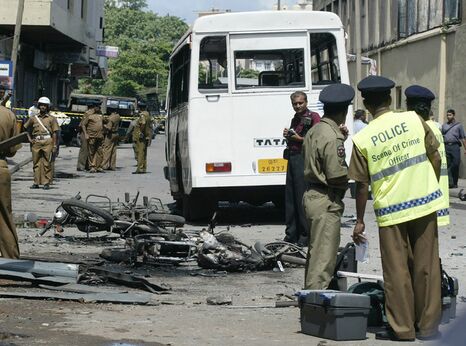Former police investigator jailed with Covid-19

Shani Abeysekera, the former director of the Criminal Investigations Department (CID) of the Sri Lanka Police, oversaw the investigations into a number of emblematic human rights cases. These included the case of the forcibly disappeared cartoonist Prageeth Ekneligoda, the assault on journalist Upali Tennekoon, the murder of journalist Lasantha Wickrematunge and the disappearance of 11 youth (the ‘Navy 11’). Current members of the government and their close associates, including president Gotabaya Rajapaksa, were implicated in some of these investigations.
Days after Gotabaya Rajapaksa won the Presidential elections in November 2019, Shani Abeysekera was demoted by the National Police Commission to serve as the personal assistant to the Deputy Inspector General of Police (DIG) to the Southern Province, without any prior disciplinary action or investigation. He is seeking redress for his transfer in a fundamental rights petition before the Supreme Court, alleging that he was removed from the post after the last Presidential election and transferred without a valid reason.
The current Government has accused Abeysekara of carrying out a political agenda. On 31 July 2020, the Colombo Crimes Division (CCD) arrested Abeysekara over allegations of concealing evidence in a weapons case involving the former DIG made by a Police Sub-Inspector. However, media reports indicate that the Police Sub-Inspector later claimed before a Magistrate court that officers of the (CCD) had threatened to arrest him unless he made a false statement implicating Abeysekera of fabricating evidence. His bail application is scheduled for hearing at the Gampaha High Court on 7 December 2020.
On 25 November, media reported that Abeysekara was tested for COVID-19 while being remanded at the Mahara Prison in Western Province and has been transferred to a military-supervised remote treatment centre at Gallella in the North Central Province, without his consent or without information about his whereabouts or health situation shared with his family. The Magistrates’ Court in Gampaha had previously ordered him to be kept in isolation while in prison for safety of his life, given that he contributed to the investigation and conviction of multiple criminal cases. The Human Rights Commission of Sri Lanka has written twice to the Commissioner General of Prisons, expressing concerns for his health as well as potential threat to his life, urging the need for hospital care.
Media reports suggested that Abeysekara was removed from isolation at the Mahara prison hospital where he was being treated for diabetes and heart disease and was put together with other prisoners against his wishes, before being relocated against his will to an army-run COVID-19 treatment facility in Gallella, Polonnaruwa. On 27 November, it was reported that he was transferred to the Infectious Diseases Hospital. Before he was tested for COVID-19, his wife had written to several senior officers including the Chief Justice, Attorney General and the Police Chief warning of risk of him being assassinated in remand custody and calling for the safety of his life.